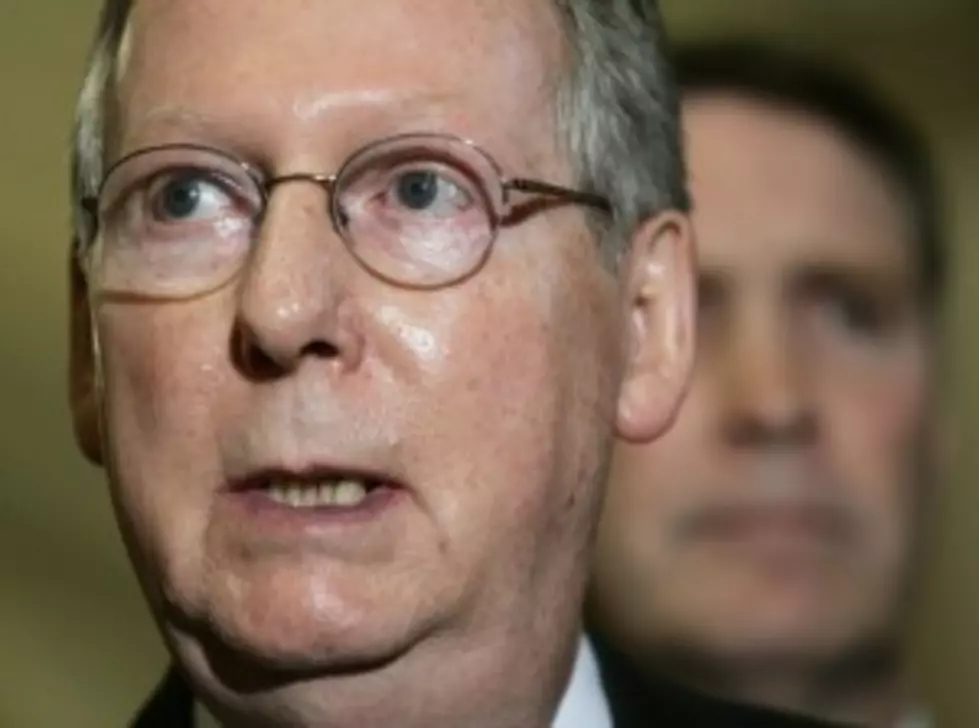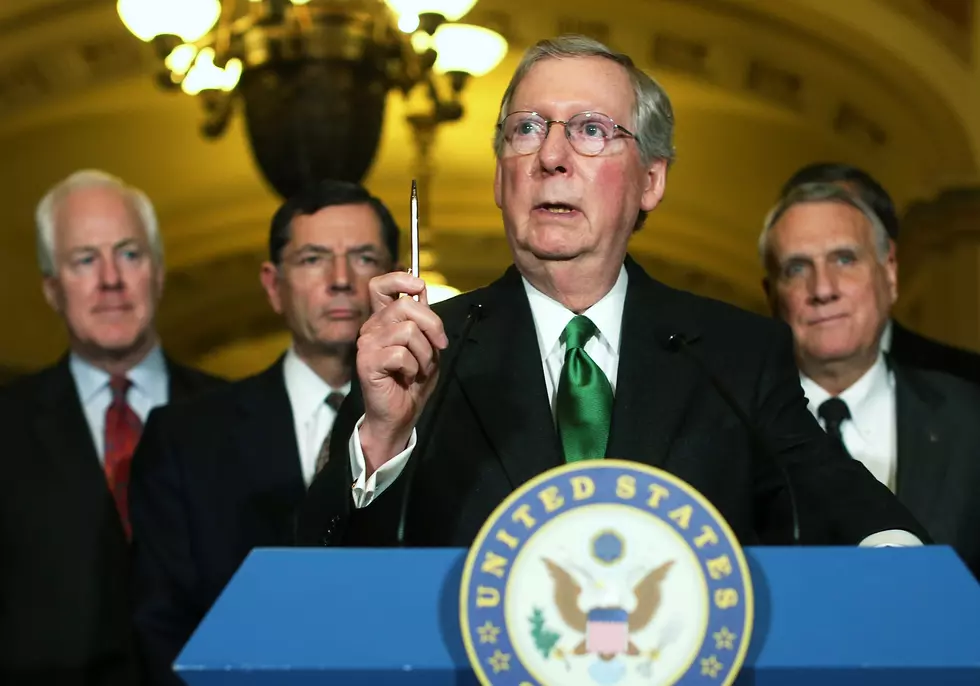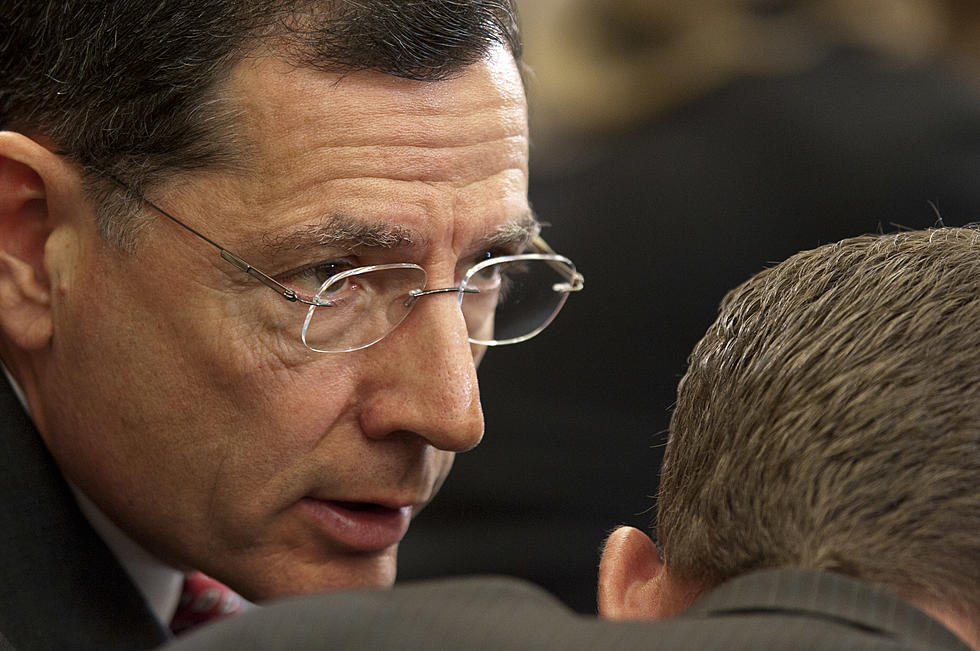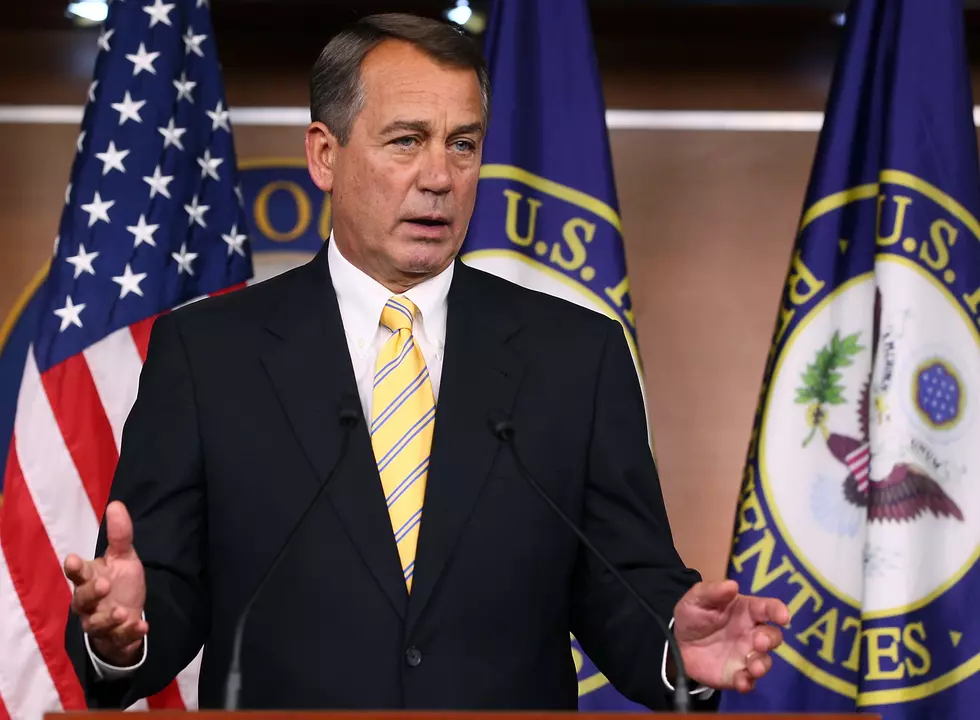
McConnell: Extend Tax Cut Short-Term And Long-Term
WASHINGTON (AP) — The Senate's top Republican on Thursday urged the GOP-led House to pass a short-term renewal of payroll tax cuts and break an impasse that threatens 160 million workers with a 2 percentage point tax increase on Jan. 1.
The move by Senate GOP Leader Mitch McConnell of Kentucky is aimed at breaking a stalemate between House Republicans and Democrats controlling the Senate. He urged House Republicans to pass a new short-term extension while calling on Senate Majority Leader Harry Reid, D-Nev., to appoint negotiators on the separate House measure that would bring a year-long renewal of the payroll tax and jobless benefits.
In competing news conferences and statements, all sides sought to avoid blame for raising taxes every working American Jan. 1 — just as they would begin paying holiday bills. House Republicans in particular were facing fire from GOP establishment figures incensed that they would risk losing the tax cut issue to Democrats at the dawn of the 2012 presidential and congressional election year.
McConnell's move intensifies pressure on House Speaker John Boehner, R-Ohio, to cut his losses and agree to a short-term bill.
"House Republicans now stand alone," said House Democratic Leader Nancy Pelosi of California.
In a Thursday morning phone call, Boehner urged President Barack Obama to send administration officials to the Capitol to negotiate an agreement on a long-term measure demanded by Republicans. Obama declined the offer.
"The president told Speaker Boehner that he is committed to begin working immediately on a full-year agreement once the House passes the bipartisan Senate compromise that prevents a tax hike on 160 million Americans on January 1," said a White House statement.
McConnell wants to reclaim a political victory asserted by Senate Republicans — winning agreement from Democrats and the White House for a decision within 60 days on construction of the Keystone XL oil pipeline, which would bring Canadian oil to the U.S. and create thousands of construction jobs.
"Leader Reid should appoint conferees on the long-term bill and the House should pass an extension that locks in the thousands of Keystone XL pipeline jobs, prevents any disruption in the payroll tax holiday or other expiring provisions, and allows Congress to work on a solution for the longer extensions," McConnell said in a statement.
McConnell's move was welcomed by Democrats but received a tepid reaction from Boehner, R-Ohio.
"We believe, as Senator McConnell suggested, the two chambers should work to reconcile the two bills so that we can provide a full year of payroll tax relief — and do it before year's end," said Boehner spokesman Kevin Smith. He declined to comment on McConnell's suggestion that House Republicans back away from their insistence on a year-long extension — or none.
But Rep. Dave Camp of Michigan, the powerful chairman of the tax-writing Ways and Means Committee and a House negotiator on this issue, suggested that he would be open to a three-month extension.
House Republicans have objected that the Senate's 60-day extension would be hard for companies to implement and would be too complicated for businesses — which file taxes every three months — to implement.
"A two-month extension only perpetuates the uncertainty that too many employers already have in dealing with the economy and what's coming out of Washington," Boehner said.
The Senate passed the two-month measure after Reid and McConnell tried but failed last week to come up with a long-term extension. Reid said that if the House passes a short-term measure he'll restart talks on a year-long plan.
"We have made good progress towards a year-long extension of all of these programs, but there remain important differences between the two parties," Reid said. "Once the House passes the Senate's bipartisan compromise ... I will be happy to restart the negotiating process to forge a year-long extension."
McConnell's idea would require the House to generate a new bill — which could address the flaws Republicans have complained about — and send the measure to the Senate. It would take unanimous agreement by the Senate to pass the measure during a pro forma session next Tuesday or Friday and it would also take such "unanimous consent" for Reid to appoint negotiators on the earlier year-long measure since the chamber is otherwise shuttered for the holidays.
In an appearance on CNBC's "Squawk Box," Camp seemed open to an idea like McConnell's.
"The policy that would work best for this country is to do a year. If we cannot do a year, we should at least do a quarter," Camp said. A Camp spokeswoman said that he was not proposing the idea but was pointing out problems with the Senate approach.
The conflict arose after the Senate, on a bipartisan vote, passed legislation last week to extend for two months the payroll tax cut and jobless benefits, as well as a "fix" for Medicare reimbursements for doctors. The House had just days before passed a full-year extension that included a series of conservative policy prescriptions.
McConnell was a driving force behind the Senate measure and had been virtually silent in the political firestorm that has erupted since, knocking tea party House Republicans on their heels.
The Republican establishment was putting special pressure on House Republicans who were refusing to compromise for the greater good of preserving the payroll tax cut. From 2008 GOP presidential nominee John McCain to former George W. Bush confidant Karl Rove and the Wall Street Journal editorial page, conservative leaders were urging Republicans on Capitol Hill to get it together.
The impasse also put Republican presidential contenders in an awkward spot less than two weeks before the Iowa caucuses that kick off the nomination process. Former Massachusetts Gov. Mitt Romney refused to be pinned down on the issue, while former House Speaker Newt Gingrich castigated Congress for "an absurd dereliction of duty."
More From K2 Radio









